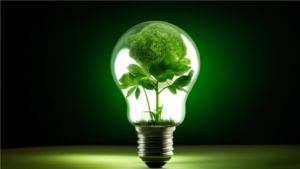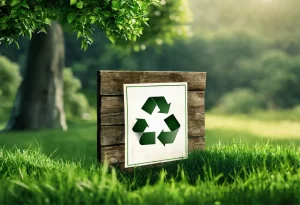AIR
 One of the main environmental tasks in implementation of the Company’s activities is protection of atmospheric air, following which industrial environmental control is carried out and measures are taken to reduce emissions of pollutants into the atmosphere.
One of the main environmental tasks in implementation of the Company’s activities is protection of atmospheric air, following which industrial environmental control is carried out and measures are taken to reduce emissions of pollutants into the atmosphere.
All subsidiaries of the Company have organized industrial environmental control (IEC) at production facilities. Environmental control is carried out in order to comply with the requirements of environmental legislation, established standards in the field of environmental protection, ensure the rational use of natural resources and minimize environmental impact.
 Environmental control is the most important legal measure to ensure rational use of natural resources and environmental protection from harmful impacts and is carried out absolutely at all stages of the production activities of subsidiaries and contractors.
Environmental control is the most important legal measure to ensure rational use of natural resources and environmental protection from harmful impacts and is carried out absolutely at all stages of the production activities of subsidiaries and contractors.
CLIMATE CHANGE AND GREENHOUSE GAS EMISSIONS
We keep records of direct and indirect greenhouse gas emissions, if the volume of greenhouse gas emissions exceeds 20 thousand tons per year, the report after validation and verification is submitted to the authorized body on an annual basis.
The volumes of greenhouse gas emissions of all subsidiaries of the Company in 2022-2023 do not exceed 20 thousand tons per year.
The Company has approved the Energy Transfer Concept of JSC NMC Tau-Ken Samruk 2022-2060, where a Roadmap has been developed with a list of measures to reduce greenhouse gas emissions and energy efficiency, which provides for reducing its greenhouse gas emissions by 10% until 2030 in relation to 2025 (2025 – commissioning of all production facilities objects of the Company group).
 The Company is conducting comprehensive work on improving energy conservation and energy efficiency of production, and as part of implementation of the Concept. This work will continue along with new tasks on reducing the carbon footprint, such as: the use of renewable energy, transfer of assets of the southern region to gas, construction of a modular boiler house with higher efficiency, etc.
The Company is conducting comprehensive work on improving energy conservation and energy efficiency of production, and as part of implementation of the Concept. This work will continue along with new tasks on reducing the carbon footprint, such as: the use of renewable energy, transfer of assets of the southern region to gas, construction of a modular boiler house with higher efficiency, etc.
WATER RESOURCES
Water is an essential component of the technological process at the main production facilities of Tau-Ken Samruk, especially at the projected fields of Shalkiya and Alaigyr. In some regions of activity, the Company also provides water supply to the local population.
 The Company carries out its activities in compliance with the legislation of the Republic of Kazakhstan. The Company’s water intake does not have a significant impact on water sources. The Tau-Ken Samruk Group of Companies does not draw water from sources recognized as vulnerable, protected by the state, especially valuable for local communities or biodiversity.
The Company carries out its activities in compliance with the legislation of the Republic of Kazakhstan. The Company’s water intake does not have a significant impact on water sources. The Tau-Ken Samruk Group of Companies does not draw water from sources recognized as vulnerable, protected by the state, especially valuable for local communities or biodiversity.
At the moment, the facilities of Tau-Ken Samruk JSC use underground water and water from municipal water supply systems for industrial and household needs.
As a result of the use of water at the Company’s enterprises, mine, industrial, storm and household wastewater is formed. The waste water discharges of the mines are treated and discharged into a storage pond. Water usage is monitored by meters or, when this is not possible, estimated based on the operating time of the pumps. We ensure the quality of wastewater through regular laboratory analyses at several monitoring points.
WASTE MANAGEMENT
Waste management is one of the most important environmental aspects for the Company. For quality control of this process, the Company develops a waste management system, constantly improves the accounting of waste generation and movement, and increases the potential for increasing the reuse of waste.
The bulk of the waste is waste rock formed during stripping and mining operations at ShalkiyaZink Ltd JSC and LLP JV Alaigyr. The empty rock is mainly reused for the construction of intra-barrier roads, and the remainder is placed on its own rock dumps.
 Temporary storage of production and consumption waste on the territory of subsidiaries and affiliates is carried out in specially designated and equipped places for this purpose. The resulting hazardous industrial waste is transferred to specialized enterprises for storage, processing and disposal. Passports have been developed for the entire list of hazardous waste. The passport contains basic information about the waste: name, list of hazardous properties, composition, toxicity and precautions for waste management.
Temporary storage of production and consumption waste on the territory of subsidiaries and affiliates is carried out in specially designated and equipped places for this purpose. The resulting hazardous industrial waste is transferred to specialized enterprises for storage, processing and disposal. Passports have been developed for the entire list of hazardous waste. The passport contains basic information about the waste: name, list of hazardous properties, composition, toxicity and precautions for waste management.
BIODIVERSITY
The existing and projected production facilities of Tau-Ken Samruk JSC are not located on the territory of specially protected natural areas (protected areas) established in accordance with the legislation, containing such territories or adjacent to them, as well as on territories with high biodiversity value outside the boundaries of specially protected areas.
 In accordance with legal requirements, an environmental impact assessment is carried out for all new and expanding projects, taking into account biodiversity issues.
In accordance with legal requirements, an environmental impact assessment is carried out for all new and expanding projects, taking into account biodiversity issues.
At the same time, as part of the project for the development of polymetallic ores of the Shalkiya deposit, before the start of construction work, a detailed survey of flora and fauna was conducted at the sites of the construction of a tailings dump and rock dumps in order to identify and preserve /transfer (if found) plant species of value and requiring protection (endemic and rare species) to a similar one. This is how additional research was conducted:
– Geobotanical surveys with a general description of the flora of the territory of the land plot for the construction of a tailings dump with an area of 180 hectares on the territory of Shalkiyatsink LTD JSC.
– Soil survey of plots with a total area of 552.8 hectares for the construction of a tailings storage facility and a pond for storing household water, as well as sites for the construction of industrial sites of the Yuzhny and Ventilation shafts with an area of 2.7 and 1.5 hectares.
– Comprehensive background environmental studies on the territory of the Shalkiya deposit and the territory of the mine water storage pond.
– Archaeological surveys of sites for the construction of industrial sites of the trunks «Yuzhny» and «Ventilation» with an area of 2.7 and 1.5 hectares.
In addition, a Biodiversity Management Plan has been developed and approved at Shalkiyatsink LTD. The Plan was developed to meet the requirements of international financial institutions and is part of the unified environmental and social management system of the Company. The main objective of the Plan is to identify and ensure the implementation of measures to manage risks and impacts on the biological components of the ecosystem associated with the activities of the Project (construction and operation phase).
As part of the implementation of the Biodiversity Management Plan at the field of Shalkiyatsink LTD JSC, the following works were performed:
– A complete mine fence has been installed in order to prevent livestock from entering the mine territory.
– The fence of the storage pond of purified household wastewater has been installed.
– Bird repellents have been installed on the mine water storage pond in order to avoid stopping migrating birds at the facility.
– The movement of equipment is carried out strictly along designated highways in order to exclude the loss of habitats of local flora and fauna.